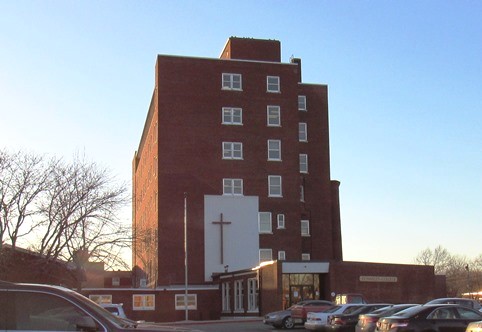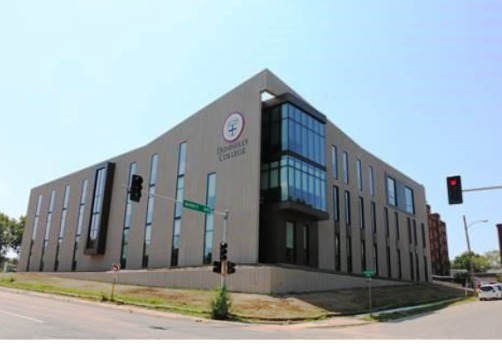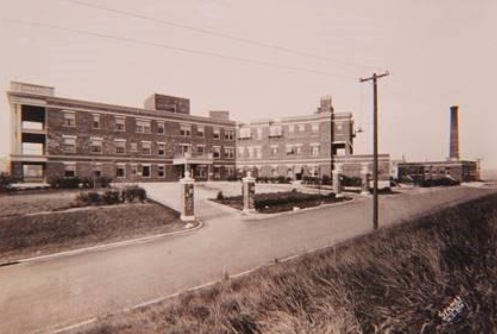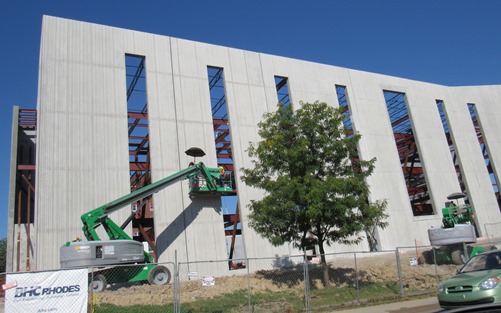

About a hundred years ago, Providence Hospital opened its building at 608 N. 18th St. in Kansas City, Kansas. This week, demolition started on the hospital’s building, which became part of the Donnelly College campus in the 1980s.
It was home to Donnelly’s academic programs until a new building was recently completed on the campus. Donnelly College moved into its new academic building this year.
Demolition on the old building is taking place now, starting with a smaller structure attached to the main tower, according to a Donnelly College spokesman, Craig Doty.
The smaller structure was the original chapel when Donnelly was in that building, he said. The stained glass windows from Donnelly’s original chapel have been removed and installed in the college’s new Blessed Seelos Chapel.
Doty said the chapel is being removed first in order to position equipment that will be needed to get to the top of the seven-story building to take it down piece by piece.
While he’s not sure how long demolition will take, they’re hoping a large portion of it could be done by mid-January, he said. A lot depends on the weather and if they run into any problems, he said.
All abatement is being done, and the building is being taken down slowly out of consideration for neighbors and the college’s existing structures, he said. They have been actively working on abatement including asbestos removal for several months now, he said.
According to Doty, the area will become greenspace and a campus quad. The smokestack will remain standing as a familiar landmark at the college.
Doty said the old hospital building was originally a three-story building, then other three-story buildings were added. Through the years, after additions, it became seven stories tall.
Donnelly acquired the building after Providence moved out, and it took a few years to renovate the hospital building, with Donnelly starting classes there in 1982. The spring of 2020 was the last class in the building, he said.
Doty said there had been years and years of planning for the old building, including plans that were drawn up to keep the building. The decision eventually was made that Donnelly would stay at its current location in Kansas City, Kansas, and build a new academic building there.
A lot of people were born in that hospital building, including three or four current Donnelly College faculty members, Doty said.
“One faculty member joked that he was born in what is now his office,” he said. “He remembers going as a child to get his tonsils taken out and other outpatient stuff, and ended up working there as an instructor.”
Donnelly will be doing a commemorative brick campaign with bricks from the existing building, and many people are showing an interest in the campaign, he said.
“We’ve been so pleased with the outpouring of support from the community,” Doty said.
Founded by the Sisters of Charity of Leavenworth, Providence Hospital moved to a new building at 89th and Parallel Parkway in the mid-1970s, when it was Providence-St. Margaret Health Center before eventually becoming Providence Medical Center. Providence was sold to Prime Health in 2013.
Donnelly College, a Catholic archdiocesan college, was founded in 1949 by the Benedictine Sisters of Atchison, who taught at the college, and by Bishop George Donnelly.
To see more information about Donnelly College, visit https://www.donnelly.edu/explore/blog/1623451/the-next-100-years.


